This article explores the most common types of legal cases in the U.S. and provides expert guidance on finding qualified attorneys in El Paso, Texas.
Personal Injury Cases
Personal injury cases are among the most prevalent legal issues in the U.S. These cases arise when individuals seek compensation for injuries caused by another party’s negligence. Common examples include car accidents, slip and fall incidents, and workplace injuries. To find a skilled personal injury lawyer, consider using online legal directories, reading client reviews, and checking the attorney’s track record in similar cases. Look for attorneys who offer free consultations and work on a contingency fee basis, meaning they only get paid if you win your case.
Medical Malpractice Claims
Medical malpractice occurs when healthcare professionals fail to provide the standard of care, resulting in patient harm. This can include surgical errors, misdiagnosis, or improper treatment. When seeking an attorney for a medical malpractice case, ensure they have experience in medical law and a proven history of successful claims. It’s beneficial to ask for referrals from trusted sources and verify the attorney’s credentials, including board certifications and memberships in professional organizations.
Breach of Contract Disputes
Breach of contract disputes arise when one party fails to fulfill their contractual obligations. These cases can be complex and require an attorney who is well-versed in contract law. To find a knowledgeable attorney, look for those who specialize in business law and have experience in your specific industry. Online legal forums and local bar associations can also provide valuable resources for finding qualified attorneys.
Property Disputes
Property disputes can involve issues such as boundary disputes, easement rights, or title issues. Engaging a qualified real estate attorney is essential for navigating these conflicts effectively. When searching for a real estate lawyer, consider their experience in property law and their familiarity with local regulations. Online reviews and consultations can help gauge their expertise.
Landlord-Tenant Disputes
Landlord-tenant disputes often revolve around issues like evictions, lease violations, and security deposits. If you’re facing such a situation, finding an attorney experienced in housing law is crucial to protect your rights. Look for attorneys who have a track record of handling similar cases and check their reviews on legal platforms. Many attorneys offer initial consultations, which can help you assess their approach and expertise.
Defamation Cases (Libel/Slander)
Defamation cases involve false statements that damage a person’s reputation. Engaging a skilled attorney familiar with media law can significantly enhance your chances of a successful claim. When searching for a defamation lawyer, consider their experience in handling high-profile cases and their understanding of the nuances of defamation laws in your state. Referrals from other legal professionals can also be a helpful resource.
Employment Disputes
Employment disputes can stem from wrongful termination, workplace discrimination, or wage issues. Finding an attorney who specializes in employment law is essential for navigating these sensitive cases. Look for attorneys with a strong track record in employment-related litigation and those who are familiar with federal and state employment laws. Online legal resources and local bar associations can help identify qualified candidates.
Product Liability Claims
Product liability cases arise when defective products cause harm to consumers. Selecting an attorney with experience in this niche is crucial for ensuring proper representation against manufacturers and retailers. When searching for a product liability lawyer, inquire about their success rate in similar cases and their familiarity with consumer protection laws. Online reviews and testimonials can provide insight into their reputation.
Wrongful Death Cases
Wrongful death claims seek justice for families who lose loved ones due to negligence. Choosing a compassionate and experienced attorney can help families pursue rightful compensation. Look for attorneys who specialize in wrongful death cases and who have a proven track record of successful outcomes. It’s also essential to find someone who understands the emotional complexities involved in these cases.
Class Action Lawsuits
Class action lawsuits allow groups of individuals to sue collectively for similar grievances. Identifying a lawyer with expertise in class actions can help streamline the legal process. When searching for a class action attorney, consider their experience with large-scale litigation and their success rate in similar cases. Referrals from others who have participated in class actions can also be beneficial.
Criminal Defense Cases
Criminal defense cases encompass various offenses, including theft, drug offenses, and violent crimes. A competent criminal defense attorney is vital for protecting your rights and interests. When searching for a criminal defense lawyer, consider their experience with your specific charges and their familiarity with local courts. Look for attorneys who offer free consultations to discuss your case without obligation.
Family Law Matters
Family law encompasses divorce, child custody, and support issues. Finding an empathetic attorney with experience in family law can facilitate smoother legal proceedings during emotional times. Look for attorneys who are members of family law associations and have a strong track record in handling similar cases. Personal referrals and online reviews can also provide valuable insights.
Bankruptcy and Financial Disputes
Bankruptcy cases involve individuals or businesses seeking relief from debts. An experienced bankruptcy attorney can guide clients through complex legal processes and help them regain financial stability. When searching for a bankruptcy lawyer, consider their experience with Chapter 7 and Chapter 13 filings, as well as their familiarity with local bankruptcy courts. Online legal directories can help you find qualified attorneys in your area.

Personal Injury Cases
Personal injury cases are a significant area of law, focusing on individuals who seek compensation for injuries sustained due to the negligence of others. These cases can arise from various incidents, including car accidents, slip and falls, and workplace injuries. The repercussions of such injuries can be profound, affecting not only the physical well-being of the victim but also their financial stability and emotional health.
When navigating the complexities of a personal injury claim, finding a skilled personal injury lawyer is crucial. The right attorney can make a substantial difference in the outcome of your case, ensuring that you receive fair compensation for your injuries. Here are essential steps to consider when searching for a qualified personal injury attorney:
- Research and Referrals: Start by asking friends, family, or colleagues for recommendations. Personal referrals can provide valuable insights into an attorney’s competence and professionalism.
- Online Reviews and Ratings: Utilize online platforms such as Avvo, Martindale-Hubbell, and Google Reviews to read client testimonials and ratings. Look for attorneys with a strong track record in personal injury cases.
- Check Credentials: Verify the attorney’s credentials, including their education, bar admission, and any special certifications in personal injury law. Membership in professional organizations such as the American Association for Justice can also be a positive indicator.
- Experience Matters: Choose an attorney with extensive experience specifically in personal injury law. Inquire about their success rate in similar cases and their familiarity with local courts.
- Consultation: Schedule initial consultations with potential lawyers. Many personal injury attorneys offer free consultations, allowing you to discuss your case without financial commitment. Use this opportunity to assess their communication style and approach to your situation.
- Contingency Fees: Most personal injury lawyers work on a contingency fee basis, meaning they only get paid if you win your case. Ensure you understand the fee structure before signing any agreements.
- Trust Your Instincts: Finally, trust your instincts when selecting an attorney. You should feel comfortable and confident in their ability to represent your interests.
In personal injury cases, the burden of proof lies with the plaintiff, meaning you must demonstrate that the other party was negligent. A proficient attorney will help gather evidence, such as medical records, accident reports, and witness statements, to build a strong case. They will also negotiate with insurance companies on your behalf to ensure you receive adequate compensation for medical expenses, lost wages, and pain and suffering.
Additionally, understanding the statute of limitations in your state is vital, as it dictates the time frame within which you can file a claim. In many states, this period ranges from one to three years, but it can vary based on the specifics of your case. A knowledgeable personal injury lawyer will be aware of these regulations and ensure that all necessary filings are completed promptly.
Ultimately, personal injury cases can be challenging and emotionally draining. However, with the right legal representation, you can navigate the complexities of the legal system and work towards obtaining the compensation you deserve.
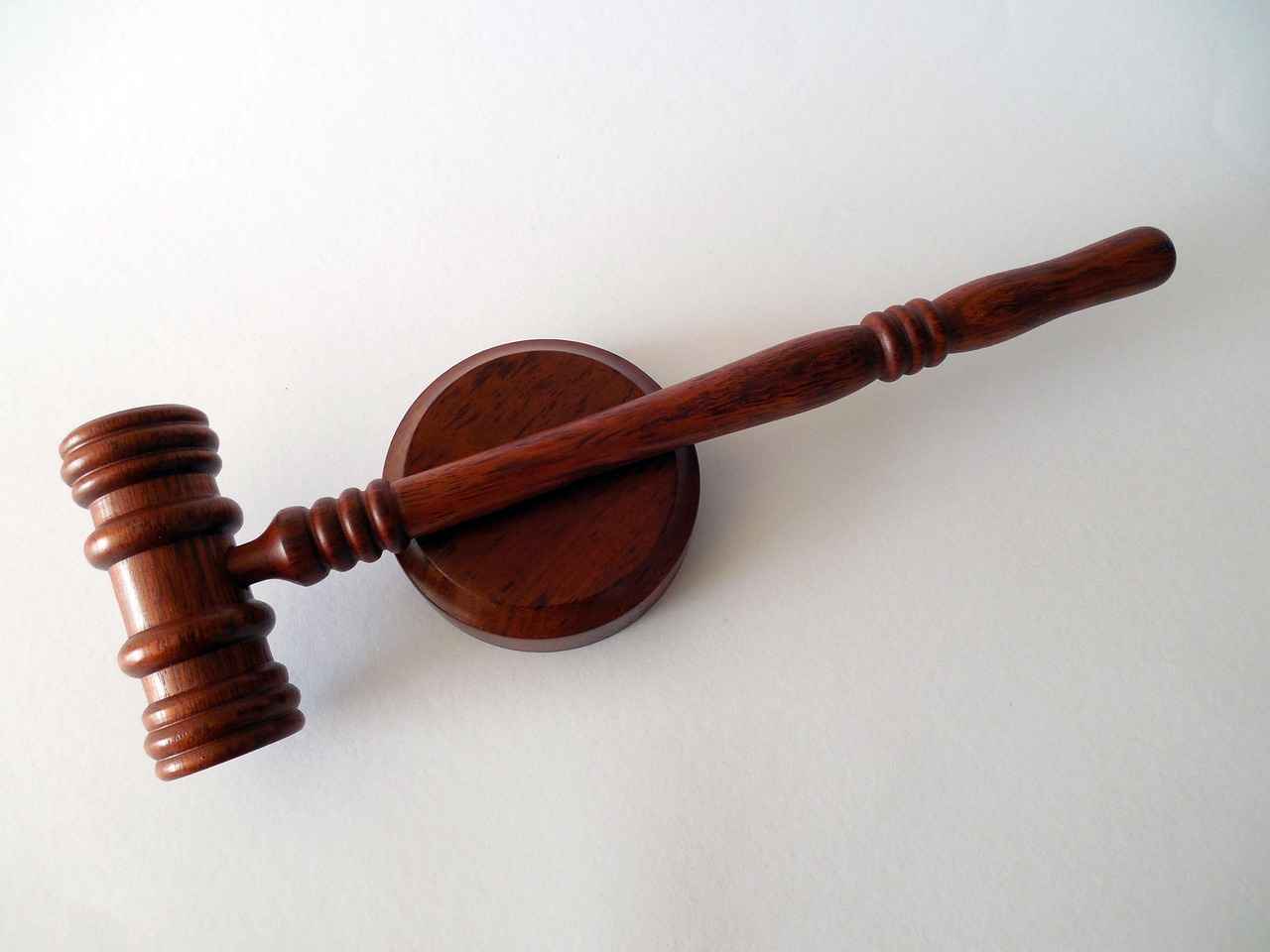
Medical Malpractice Claims
represent a significant area of law that arises when healthcare professionals fail to provide the standard of care expected in their field, resulting in harm to patients. This type of negligence can manifest in various forms, including misdiagnosis, surgical errors, and improper treatment. Navigating the complexities of medical malpractice law requires not only a deep understanding of medical standards but also a skilled attorney who specializes in this field.
When searching for a competent lawyer to handle a medical malpractice claim, consider the following essential factors:
- Experience and Specialization: Look for attorneys who specialize in medical malpractice cases. Their experience can significantly influence the outcome of your case. Verify their track record in handling similar cases and the results they have achieved.
- Reputation: Research the attorney’s reputation within the legal community. This can include reading online reviews, checking ratings on legal platforms like Avvo or Martindale-Hubbell, and seeking recommendations from trusted sources.
- Initial Consultation: Most attorneys offer free initial consultations. Use this opportunity to assess their understanding of your case and their approach to handling it. Pay attention to how they communicate and whether they listen to your concerns.
- Fees and Payment Structure: Medical malpractice claims can be costly due to the need for expert witnesses and extensive research. Ensure you understand the attorney’s fee structure, including whether they work on a contingency basis, meaning they only get paid if you win your case.
- Communication: Effective communication is vital. Choose an attorney who is responsive and willing to keep you informed throughout the legal process. This transparency can alleviate some of the stress associated with legal proceedings.
Additionally, be aware of potential red flags when selecting an attorney:
- Pressure Tactics: Be cautious of attorneys who pressure you to sign contracts quickly or who make unrealistic promises about the outcome of your case.
- Lack of Specialization: Avoid general practitioners who claim to handle medical malpractice cases without a proven track record in this specific area of law.
- Poor Communication Skills: If an attorney is difficult to reach or fails to answer your questions clearly during the initial consultation, consider this a warning sign.
In major metropolitan areas like New York City, Los Angeles, and Chicago, the competition among attorneys can be fierce. Utilize local bar associations or legal referral services to find qualified attorneys. Many cities also have online directories that allow you to filter attorneys based on their specialties and client reviews. This can help you make a more informed decision.
Lastly, don’t underestimate the importance of personal comfort. You will be sharing sensitive information with your attorney, so it’s crucial to choose someone you feel comfortable with and trust. Securing the right legal representation in a medical malpractice case can make all the difference in achieving a favorable outcome.

Breach of Contract Disputes
are legal conflicts that arise when one party does not fulfill their obligations as outlined in a contractual agreement. This can occur in various contexts, including business transactions, employment contracts, and service agreements. Understanding the nuances of breach of contract cases is essential for both individuals and businesses to protect their rights and interests.
In many instances, a breach can be categorized as either a minor breach, where the essential terms of the contract are met but some minor aspects are not fulfilled, or a material breach, which significantly undermines the contract’s purpose. The implications of a breach can vary widely, affecting everything from financial stability to business relationships.
When faced with a breach of contract, seeking a knowledgeable attorney who specializes in contract law is crucial. Here are some expert tips for finding the right legal representation in this area:
- Look for Specialization: Ensure the attorney has specific experience in breach of contract disputes. This specialization can significantly impact the outcome of your case.
- Check Credentials: Review the attorney’s educational background, bar associations, and any additional certifications related to contract law.
- Assess Experience: An attorney with a proven track record in handling similar cases can provide valuable insights and strategies tailored to your situation.
- Read Reviews: Online platforms like Avvo and Martindale-Hubbell offer client reviews and ratings that can help gauge the attorney’s reputation and effectiveness.
- Consultation Meetings: Schedule initial consultations to discuss your case. This allows you to assess the attorney’s communication style, approach to your case, and whether you feel comfortable working with them.
Additionally, be mindful of potential red flags when hiring an attorney:
- Lack of Transparency: If an attorney is unwilling to discuss fees or their approach to your case, it may be a sign to look elsewhere.
- Poor Communication: An attorney who does not respond promptly to inquiries may not prioritize your case.
- Unclear Strategy: If the attorney cannot articulate a clear strategy for your case, this could indicate a lack of experience or preparedness.
In conclusion, navigating breach of contract disputes requires an informed approach to finding the right legal representation. By focusing on specialization, experience, and communication, individuals can secure the best possible outcome for their case.
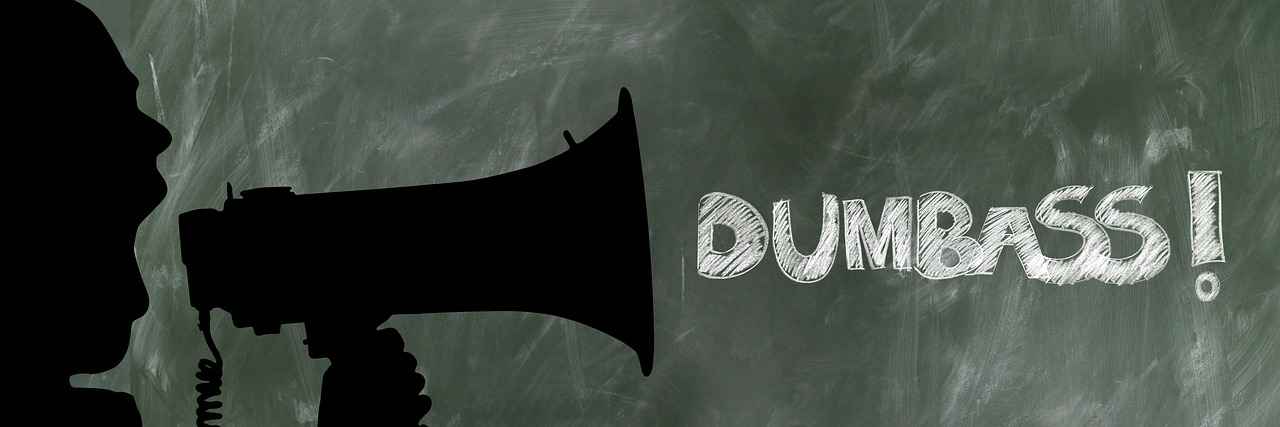
Property Disputes
Property disputes can arise for a multitude of reasons, affecting homeowners, landlords, and tenants alike. These conflicts may include boundary disputes, where two property owners disagree on the exact lines separating their properties, or title issues, which can involve questions over ownership rights and claims. Understanding the complexities of property law is essential, and this is where the expertise of a qualified real estate attorney becomes invaluable.
When faced with a property dispute, it’s crucial to seek legal representation that specializes in real estate law. A knowledgeable attorney can navigate the intricate legal landscape, providing you with the guidance necessary to resolve conflicts effectively. Here are some key factors to consider when searching for a real estate attorney:
- Experience and Specialization: Look for attorneys who have extensive experience specifically in property disputes. Their familiarity with local laws and regulations can make a significant difference in the outcome of your case.
- Client Reviews and Testimonials: Research potential attorneys by reading client reviews. Positive feedback from previous clients can indicate a lawyer’s ability to handle cases effectively.
- Consultation Availability: Many attorneys offer free initial consultations. Use this opportunity to discuss your case and gauge the lawyer’s understanding and approach.
- Fee Structure: Understand the attorney’s fee structure upfront. Some may charge hourly rates, while others may work on a contingency basis. Ensure that you are comfortable with the financial arrangement before proceeding.
In addition to these factors, it is also important to be aware of red flags when hiring a property attorney:
- Lack of Transparency: If an attorney is unwilling to provide clear information about their fees or processes, it may be a warning sign.
- Limited Communication: An attorney who does not respond promptly to inquiries may not prioritize your case.
- No Clear Strategy: If the attorney cannot articulate a clear plan for your case, it may indicate a lack of experience or understanding.
In metropolitan areas like New York City, Los Angeles, and Chicago, the competition among real estate attorneys can be fierce. Utilize online legal directories such as Avvo or FindLaw to compare credentials and read reviews. Networking through local real estate groups or community forums can also yield valuable recommendations.
Ultimately, resolving property disputes requires not only legal knowledge but also negotiation skills and a thorough understanding of real estate regulations. By choosing the right attorney, you can ensure that your interests are protected and that you have the best chance of achieving a favorable outcome.

Landlord-Tenant Disputes
are a common aspect of housing law that can arise from various issues, including eviction, lease violations, and disputes over security deposits. Understanding the nuances of these disputes is crucial for both landlords and tenants, as the outcomes can significantly affect their rights and responsibilities.
When facing a landlord-tenant dispute, the first step is to understand the specific laws that govern these relationships in your state or locality. Each region may have different regulations regarding notice periods for eviction, the conditions under which a lease can be terminated, and the rights of both parties concerning property maintenance and repairs. Familiarizing yourself with these laws can provide a solid foundation for resolving disputes amicably.
Finding a Qualified Housing Lawyer
It is essential to find a lawyer who specializes in housing law to navigate the complexities of landlord-tenant disputes effectively. Here are some practical steps to identify the right attorney:
- Research Online: Utilize legal directories such as Avvo or FindLaw to search for attorneys in your area who specialize in housing law.
- Check Credentials: Look for attorneys with relevant experience and credentials, such as membership in the American Bar Association and state bar associations.
- Read Reviews: Client testimonials can provide insight into an attorney’s effectiveness and professionalism. Pay attention to feedback regarding their communication style and success in resolving disputes.
- Consult Local Legal Aid: If cost is a concern, consider reaching out to local legal aid organizations, which often provide free or low-cost legal assistance for housing issues.
Red Flags to Avoid
When selecting a lawyer, be aware of potential red flags that may indicate a lack of professionalism or expertise:
- Poor Communication: If an attorney is unresponsive or fails to answer your questions clearly during initial consultations, it may signal future communication issues.
- High Pressure Tactics: Be cautious of attorneys who pressure you into making quick decisions or signing contracts without fully understanding the implications.
- Lack of Transparency: Ensure that the attorney provides clear information about their fees, including any retainer or hourly rates, and any additional costs that may arise.
In landlord-tenant disputes, having a knowledgeable attorney can make a significant difference in the outcome of your case. They can help you navigate negotiations, represent you in court if necessary, and ensure that your rights are protected throughout the process. Whether you are a landlord seeking to evict a tenant or a tenant fighting against wrongful eviction, expert legal guidance is invaluable.
Ultimately, understanding your rights and obligations as a landlord or tenant, coupled with the support of a qualified housing lawyer, can lead to more favorable resolutions in landlord-tenant disputes. By taking the time to research and select the right attorney, you can protect your interests and ensure that you are treated fairly under the law.

Defamation Cases (Libel/Slander)
Defamation cases, which encompass both libel and slander, are critical in protecting a person’s reputation against false statements that can lead to significant personal and professional harm. In the legal realm, defamation is defined as any false statement presented as a fact that injures a party’s reputation. This can occur through written statements (libel) or spoken words (slander). Given the complexities involved in such cases, engaging a skilled attorney who specializes in media law is essential for mounting a successful claim.
When pursuing a defamation case, it is important to establish certain elements: the statement must be false, made to a third party, and must cause harm to the plaintiff’s reputation. Additionally, if the plaintiff is a public figure, they must also prove that the statement was made with actual malice, meaning the defendant knew the statement was false or acted with reckless disregard for the truth.
To navigate the intricacies of defamation law, individuals should consider the following steps when seeking legal representation:
- Research Experience: Look for attorneys who have a proven track record in handling defamation cases. This includes familiarity with media law, as well as experience in representing clients in similar situations.
- Check Credentials: Verify the attorney’s qualifications, including their education, bar membership, and any special certifications in media or defamation law.
- Consult Reviews and Testimonials: Online reviews and testimonials from former clients can provide insight into the attorney’s effectiveness, communication style, and overall satisfaction.
- Initial Consultation: Schedule a consultation to discuss the details of your case. This meeting is an opportunity to assess the attorney’s understanding of defamation law and their approach to your situation.
- Evaluate Communication Skills: Effective communication is crucial in legal matters. Ensure that the attorney can explain complex legal concepts clearly and is responsive to your inquiries.
- Understand Fee Structures: Discuss the attorney’s fee structure upfront, whether they charge hourly rates, flat fees, or work on a contingency basis. Make sure you understand the financial implications of hiring them.
In metropolitan areas like New York City, Los Angeles, and Chicago, the legal landscape can be competitive. Therefore, utilizing online platforms such as Avvo, FindLaw, or Martindale-Hubbell can aid in finding qualified attorneys. These platforms often provide ratings, reviews, and detailed profiles that can help you make an informed decision.
Additionally, be aware of red flags that may indicate an attorney is not the right fit for your case. These include:
- Unclear or vague communication regarding your case.
- A lack of experience in defamation or media law.
- Pressure to settle quickly without proper consideration of your claims.
- High fees without a clear explanation of the services provided.
In conclusion, defamation cases are complex and require expert legal guidance. By taking the time to research and evaluate potential attorneys, you can significantly enhance your chances of a favorable outcome in your defamation claim. Engaging a knowledgeable attorney who understands the nuances of media law will empower you to protect your reputation effectively.

Employment Disputes
are a significant concern for both employees and employers, often arising from issues such as wrongful termination, discrimination, and wage disputes. These cases can be sensitive and complex, requiring a thorough understanding of employment law. It is crucial to find an attorney who specializes in this field to navigate the intricacies of such disputes effectively.
When dealing with employment disputes, the first step is to understand the nature of your case. For instance, wrongful termination occurs when an employee is fired for illegal reasons, such as discrimination based on race, gender, or age. If you believe you have been wrongfully terminated, gathering evidence such as emails, performance reviews, and witness statements is essential. This documentation will be invaluable when discussing your case with an attorney.
Discrimination cases can involve various forms of unfair treatment in the workplace, including harassment or unequal pay. If you suspect that you have faced discrimination, it is vital to consult with a lawyer who has experience in handling these types of claims. They can help you understand your rights and the potential remedies available to you, which may include compensation for lost wages or reinstatement to your position.
Another common issue is related to wage disputes, which can arise when employees are not paid fairly for their work. This includes claims for unpaid overtime, minimum wage violations, or misclassification of employees. In these cases, it is essential to have a knowledgeable attorney who can navigate the Fair Labor Standards Act and other relevant laws to ensure that you receive the compensation you deserve.
To find the best attorney for your employment dispute, consider the following steps:
- Research and Referrals: Start by asking friends, family, or colleagues for recommendations. Online reviews and ratings on legal directories can also provide insights into an attorney’s reputation.
- Check Credentials: Look for attorneys who specialize in employment law and have a proven track record of handling cases similar to yours. Verify their credentials and experience through state bar associations.
- Initial Consultations: Many attorneys offer free initial consultations. Use this opportunity to discuss your case and gauge their understanding and approach to your situation.
- Evaluate Communication: Choose an attorney who communicates clearly and promptly. You want someone who will keep you informed throughout the process and is responsive to your questions.
- Discuss Fees: Understand the attorney’s fee structure before hiring them. Some may work on a contingency basis, while others may charge hourly rates. Ensure you are comfortable with the terms.
In metropolitan areas like New York City, Los Angeles, and Chicago, the competition among attorneys can be fierce. Therefore, it becomes even more important to conduct thorough research and select an attorney who not only has the relevant experience but also aligns with your needs and expectations.
Be aware of red flags when selecting an attorney. If an attorney guarantees a specific outcome, it is a cause for concern, as no attorney can predict the results of a case with certainty. Additionally, if an attorney is unwilling to provide references or has a history of disciplinary actions, it may be wise to look elsewhere.
In summary, employment disputes require careful handling and the guidance of a qualified attorney. By following the outlined steps and being vigilant about the selection process, you can find a legal professional who will advocate for your rights and help you achieve a favorable outcome.

Product Liability Claims
Product liability claims are crucial in holding manufacturers, retailers, and distributors accountable for the safety of their products. These claims arise when a defective product causes injury or harm to a consumer. Understanding the complexities of product liability law is essential for anyone who has suffered due to a faulty product, and selecting the right attorney can significantly impact the outcome of your case.
When pursuing a product liability claim, it is vital to recognize the types of defects that can lead to liability. These typically fall into three categories: design defects, manufacturing defects, and marketing defects. A design defect occurs when the product is inherently unsafe due to its design. Manufacturing defects arise when a product is improperly made, making it unsafe for consumer use. Marketing defects involve inadequate warnings or instructions that fail to inform consumers about potential risks associated with the product.
Finding an attorney experienced in product liability cases is essential. Here are some steps to ensure you select the right legal representation:
- Research and Referrals: Start by asking friends, family, or colleagues for recommendations. Online platforms like Avvo or Martindale-Hubbell can also help you find attorneys with a strong focus on product liability.
- Check Credentials: Look for attorneys who specialize in personal injury or product liability law. Verify their education, years of experience, and track record of successful claims.
- Initial Consultations: Many attorneys offer free initial consultations. Use this opportunity to discuss your case and assess their understanding of product liability laws.
- Ask About Fees: Clarify their fee structure. Many product liability attorneys work on a contingency basis, meaning they only get paid if you win your case.
- Evaluate Communication: Choose an attorney who communicates clearly and promptly. You want someone who keeps you informed throughout the process.
Red flags to watch out for include attorneys who make unrealistic promises about the outcome of your case or those who lack experience in product liability claims. A competent attorney will provide an honest assessment of your situation and outline the potential challenges you may face.
In major metropolitan areas like New York City, Los Angeles, and Chicago, the competition among attorneys can be fierce. Look for lawyers who are well-versed in local laws and have a network of experts, such as engineers or product safety specialists, who can support your case. These connections can significantly strengthen your claim.
In conclusion, product liability claims are complex and require skilled legal representation. By following the steps outlined above, you can find a qualified attorney who will advocate for your rights and help you seek the compensation you deserve.

Wrongful Death Cases
represent one of the most tragic and challenging areas of law, as they involve the loss of a loved one due to another’s negligence or intentional actions. Families left behind often experience profound grief and confusion, compounded by the complexities of the legal system. Pursuing a wrongful death claim can not only provide a sense of justice but also offer financial support to cover medical expenses, funeral costs, and lost income. As an experienced legal expert, I aim to guide families through this difficult journey by outlining the essential steps to finding the right attorney for their case.
When looking for a qualified attorney to handle a wrongful death claim, consider the following factors:
- Experience and Specialization: Seek out attorneys who specialize in wrongful death cases. Their experience in similar situations will be invaluable in navigating the legal intricacies involved.
- Reputation: Research potential attorneys through online reviews, testimonials, and professional rating organizations. A strong reputation in the community can be a good indicator of an attorney’s ability to handle your case effectively.
- Compassion and Communication: Choose an attorney who demonstrates empathy and understands the emotional turmoil you are experiencing. Effective communication is crucial, so ensure they are approachable and willing to keep you informed throughout the process.
- Track Record of Success: Look for attorneys with a proven history of winning wrongful death cases. This can include settlements and jury verdicts that reflect their ability to advocate for their clients’ rights.
- Fee Structure: Many wrongful death attorneys work on a contingency fee basis, meaning they only get paid if you win your case. Understand their fee structure and any additional costs that may arise during the legal process.
In metropolitan areas like New York City, Los Angeles, and Chicago, finding a wrongful death attorney can be overwhelming due to the sheer number of legal professionals available. Here are some practical methods to streamline your search:
- Online Legal Directories: Websites like Avvo, FindLaw, and Martindale-Hubbell can help you find experienced wrongful death attorneys in your area. These platforms often provide detailed profiles, including areas of expertise, client reviews, and contact information.
- Referrals: Ask friends, family, or colleagues for recommendations. Personal referrals can often lead you to trustworthy attorneys who have successfully handled similar cases.
- Consultation Meetings: Many attorneys offer free initial consultations. Use this opportunity to gauge their expertise, communication style, and whether you feel comfortable working with them.
While searching for the right attorney, be aware of red flags that may indicate a less-than-reputable legal professional:
- Pressure Tactics: Be cautious of attorneys who pressure you to sign a contract immediately or rush you into making decisions. A reputable attorney will give you the time you need to make informed choices.
- Lack of Transparency: If an attorney is vague about their fees or the legal process, consider it a warning sign. Clear communication and transparency are essential in any attorney-client relationship.
- Negative Reviews: While no attorney is perfect, a pattern of negative reviews or disciplinary actions can indicate potential issues. Always conduct thorough research before making a decision.
In conclusion, navigating a wrongful death claim requires not only legal expertise but also compassion and understanding. By taking the time to find an experienced attorney who specializes in wrongful death cases, families can ensure they are well-represented and supported during this challenging time. Remember, the right attorney can help you seek justice and obtain the compensation you deserve.
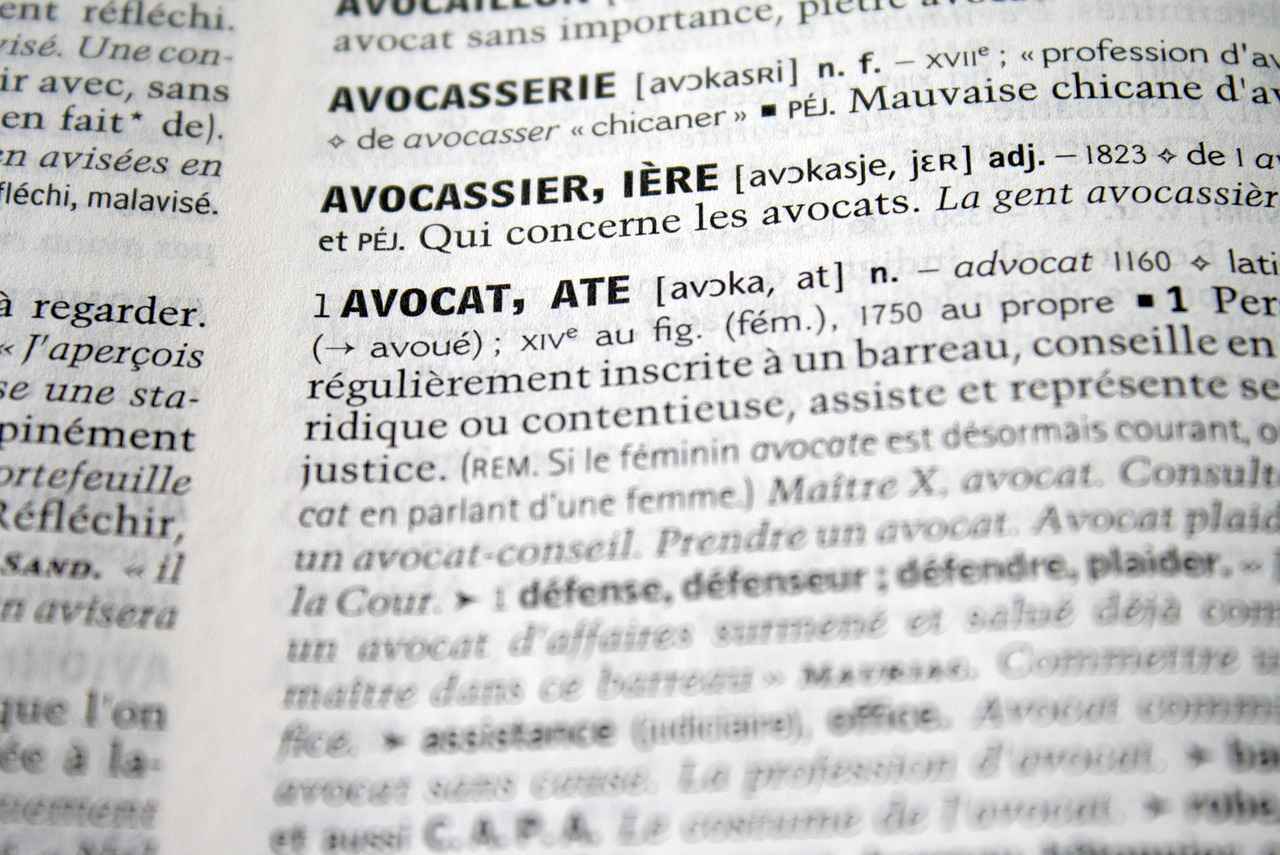
Class Action Lawsuits
are a powerful legal tool that allows groups of individuals with similar grievances to come together and file a lawsuit against a common defendant. This collective action can be particularly effective in cases where individual claims may be too small to justify the cost of litigation. By pooling resources, plaintiffs can share the financial burden and increase their chances of achieving a favorable outcome.
When considering a class action lawsuit, it is crucial to identify a lawyer with expertise in this area of law. Class action cases often involve complex legal issues and require a deep understanding of both the law and the specific industry involved. Here are some practical steps to help you find the right attorney:
- Research Law Firms: Start by researching law firms that specialize in class action lawsuits. Look for firms with a proven track record of success in similar cases.
- Check Credentials: Verify the attorney’s credentials, including their education, years of experience, and any relevant certifications. Membership in professional associations, such as the American Association for Justice, can also indicate a commitment to this area of law.
- Review Case Histories: Examine past class action cases handled by the attorney or firm. Look for outcomes, settlements, and the attorney’s role in those cases.
- Consult Online Reviews: Utilize platforms like Avvo or Martindale-Hubbell to read client reviews and ratings. Positive feedback from former clients can provide insights into the attorney’s effectiveness and professionalism.
- Schedule Consultations: Many attorneys offer free initial consultations. Use this opportunity to discuss your case and assess the attorney’s understanding of class action law.
- Ask the Right Questions: During your consultation, inquire about the attorney’s experience with class actions, their strategy for your case, and how they plan to communicate with you throughout the process.
It is also essential to be aware of red flags when selecting a class action attorney. Avoid lawyers who make unrealistic promises about the outcome of your case or who are unwilling to discuss their fees transparently. Additionally, be cautious of attorneys who seem more interested in settling quickly than fighting for the best possible outcome for the class.
In summary, finding the right lawyer for a class action lawsuit requires careful research and consideration. By following these guidelines, you can enhance your chances of securing a qualified attorney who will advocate effectively for your rights and interests.

Criminal Defense Cases
Criminal defense cases are a critical aspect of the legal system, encompassing a wide range of offenses that can profoundly impact an individual’s life. These offenses include theft, drug offenses, violent crimes, and more. The stakes are high, and the consequences of a conviction can lead to significant legal penalties, including imprisonment, fines, and a permanent criminal record. Therefore, having a competent criminal defense attorney is essential for protecting your rights and interests.
When navigating the complexities of criminal law, it is crucial to understand the various types of offenses that fall under criminal defense. Common offenses include:
- Theft and Burglary: These offenses involve taking someone else’s property without permission, whether through breaking and entering or other means.
- Drug Offenses: Charges related to the possession, distribution, or manufacturing of illegal substances can lead to severe penalties.
- Assault and Battery: These crimes involve physical harm or the threat of harm to another person.
- Murder and Homicide: The most serious criminal charges, involving the unlawful killing of another person.
- DUI/DWI: Driving under the influence of alcohol or drugs can result in significant legal consequences, including license suspension and imprisonment.
- Domestic Violence: Charges related to violence within a domestic setting can have lasting effects on families and relationships.
- Sexual Offenses: These serious allegations can lead to severe penalties and societal stigma.
- White Collar Crimes: Fraud and embezzlement cases often involve financial deception and can be complex to navigate.
- Cybercrime: Offenses involving technology and the internet are becoming increasingly prevalent, requiring specialized legal knowledge.
Finding the right attorney for your criminal defense case is paramount. Here are some expert tips to help you locate a qualified legal professional:
- Research Online: Utilize legal directories and review platforms to find attorneys with expertise in criminal defense. Websites like Avvo and FindLaw provide ratings and reviews from previous clients.
- Check Credentials: Look for attorneys with a strong background in criminal law, including years of experience, bar association membership, and any specialized certifications.
- Consultations: Many attorneys offer free initial consultations. Use this opportunity to discuss your case and evaluate their approach and communication style.
- Ask About Experience: Inquire whether the attorney has handled cases similar to yours and their success rate in those cases.
- Assess Compatibility: A good attorney-client relationship is crucial. Ensure you feel comfortable discussing sensitive issues and that the attorney listens to your concerns.
- Red Flags: Be wary of attorneys who guarantee specific outcomes, those who pressure you into making quick decisions, or those with a lack of transparency regarding fees and billing practices.
In major metropolitan areas like New York City, Los Angeles, and Chicago, the competition among criminal defense attorneys is fierce. Therefore, it is essential to take your time and conduct thorough research to find the best representation. Each city has its unique legal landscape, so understanding local laws and court systems can also be beneficial.
Ultimately, the right attorney can make a significant difference in the outcome of your case. Their knowledge, skills, and experience can help navigate the complexities of the legal system, ensuring that your rights are protected throughout the process. Whether facing minor charges or serious felonies, investing time in finding the right legal representation is a crucial step toward achieving a favorable resolution.
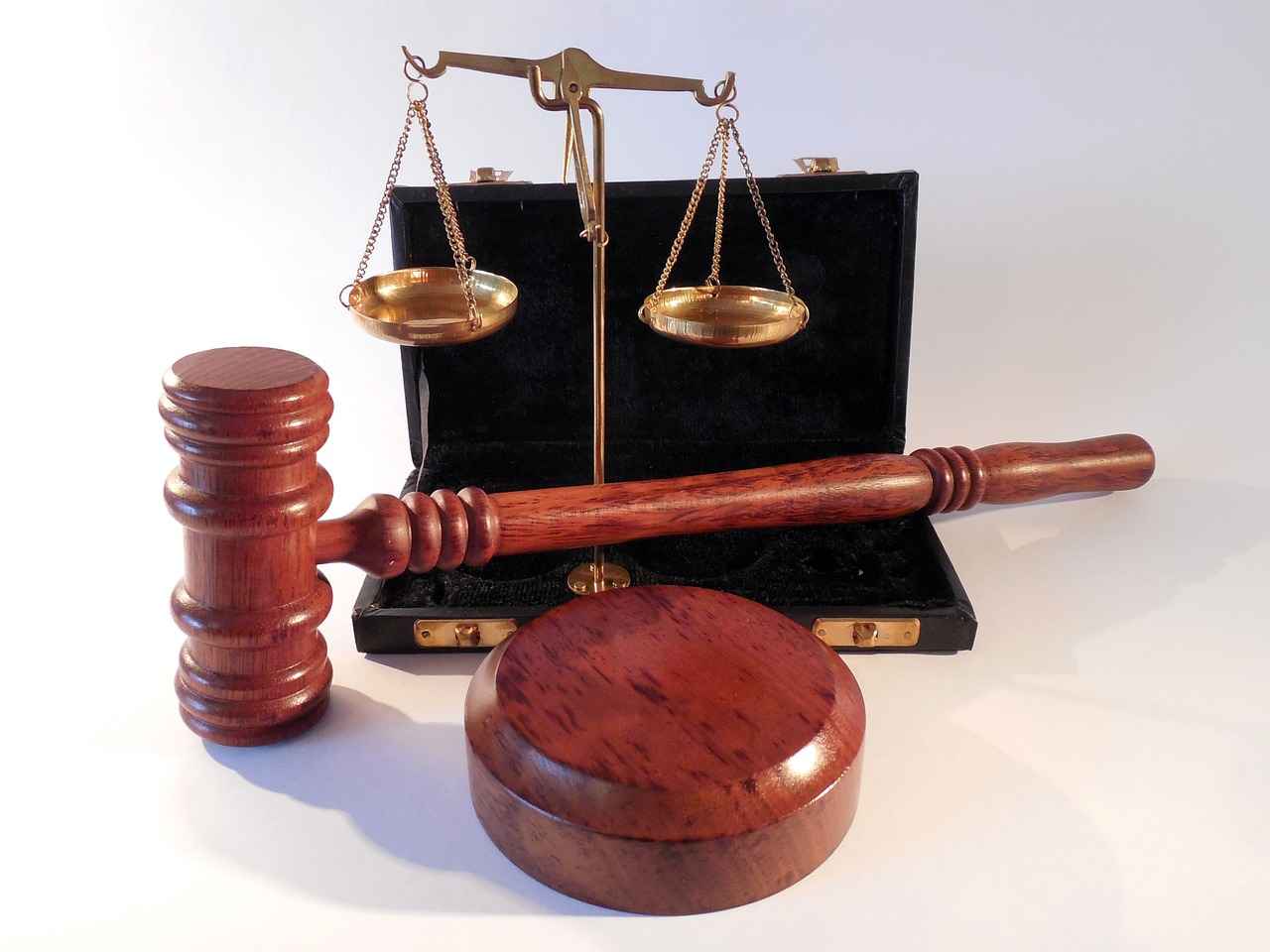
Family Law Matters
Family law is a crucial area of legal practice that addresses various issues affecting families and individuals. This field encompasses a wide range of matters, including divorce, child custody, child support, spousal support (alimony), adoption, paternity, and guardianship. Given the emotional nature of these cases, it is essential to find an attorney who not only possesses the requisite legal expertise but also demonstrates empathy and understanding during such challenging times.
When seeking legal representation in family law matters, consider the following steps to ensure you find the most qualified attorney:
- Research and Referrals: Start by asking friends, family, or colleagues for recommendations. Personal referrals can provide insights into an attorney’s style and effectiveness. Additionally, utilize online platforms such as Avvo or FindLaw to research potential candidates.
- Check Credentials: Look for attorneys who are members of professional organizations such as the American Academy of Matrimonial Lawyers or the Family Law Section of the American Bar Association. These affiliations often indicate a commitment to staying updated on family law changes and best practices.
- Consultation: Schedule initial consultations with multiple attorneys. Many offer free or low-cost consultations. Use this opportunity to evaluate their communication style, approach to your case, and overall demeanor.
- Experience Matters: Inquire about their experience with cases similar to yours. An attorney with a proven track record in family law will be more adept at navigating the complexities of your situation.
- Fees and Billing: Discuss their fee structure upfront. Understanding whether they charge hourly rates, flat fees, or retainers can help you budget accordingly and avoid unexpected costs.
In family law, emotional intelligence is just as important as legal knowledge. Look for attorneys who demonstrate a compassionate approach, as they will be more likely to understand your unique circumstances. Additionally, ensure that they are skilled negotiators, as many family law cases are settled outside of court through mediation or collaborative law processes.
Finally, be cautious of red flags when choosing a lawyer. Avoid attorneys who make unrealistic promises or guarantees about the outcome of your case. Transparency is key; a reputable attorney will provide honest assessments and set realistic expectations.
In summary, navigating family law matters requires careful consideration and the right legal representation. By following these steps, you can find a qualified attorney who will advocate for your interests while providing the support you need during this challenging time.
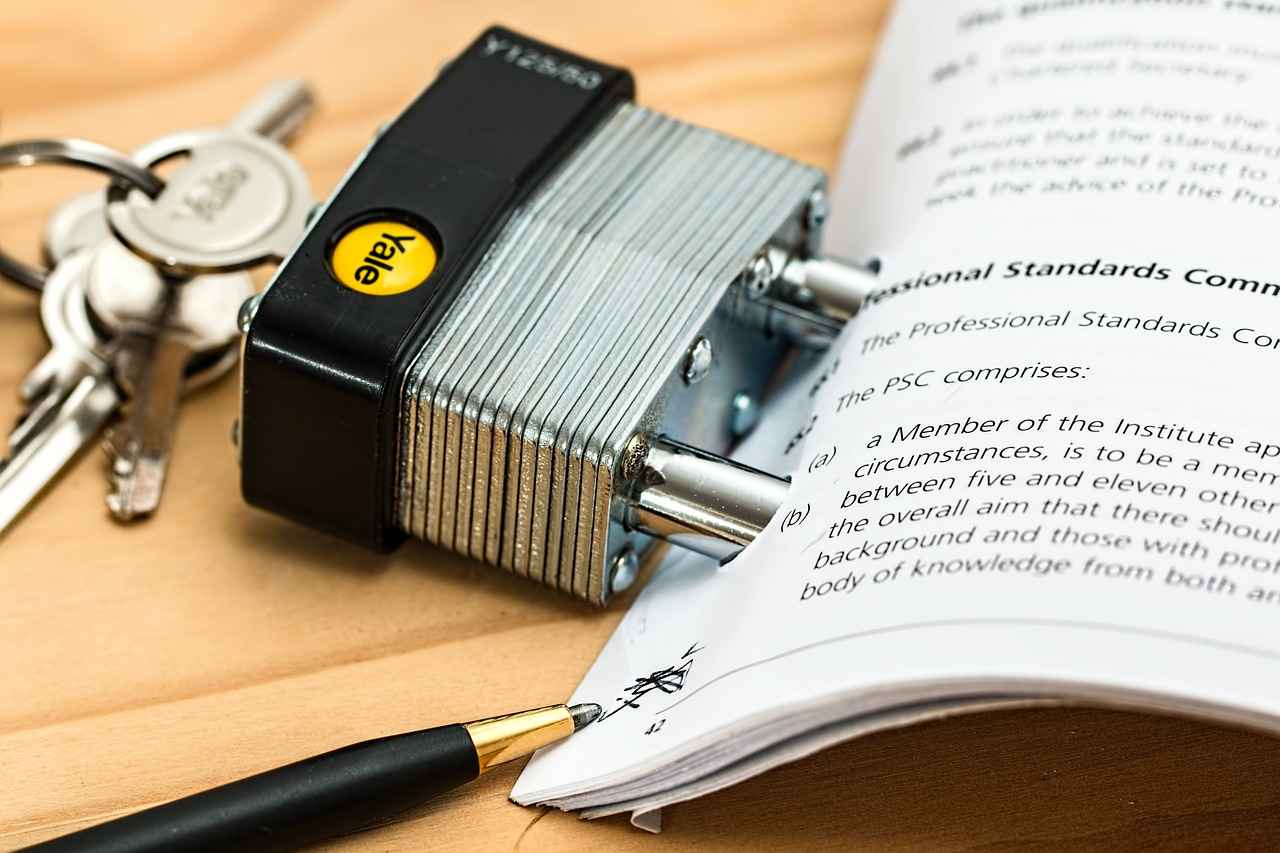
Bankruptcy and Financial Disputes
Bankruptcy and financial disputes can be overwhelming for individuals and businesses alike. In a world where financial stability is crucial, navigating the complexities of bankruptcy law becomes essential for those seeking relief from insurmountable debts. An experienced bankruptcy attorney plays a pivotal role in guiding clients through these challenging times, ensuring that they understand their rights and options while working towards a fresh financial start.
When considering bankruptcy, it is important to recognize the different types available, such as Chapter 7 and Chapter 13 bankruptcy. Chapter 7 involves liquidating assets to pay off debts, while Chapter 13 allows individuals to reorganize their debts and create a repayment plan. Understanding these distinctions can help clients make informed decisions about which path to take.
Finding the right bankruptcy attorney in major metropolitan areas like New York City, Los Angeles, or Chicago can significantly influence the outcome of a bankruptcy case. Here are some proven methods and platforms to help individuals locate qualified legal professionals:
- Referrals and Recommendations: Start by asking friends, family, or colleagues for recommendations. Personal experiences can provide valuable insights into an attorney’s expertise and approach.
- Online Legal Directories: Utilize platforms like Avvo or FindLaw, which offer listings of attorneys along with reviews and ratings from past clients.
- State Bar Association: Check with your state’s bar association for a list of licensed bankruptcy attorneys. This ensures that the lawyer is in good standing and has the necessary credentials.
- Consultations: Schedule initial consultations with potential attorneys. This allows you to assess their knowledge, communication style, and whether you feel comfortable working with them.
When evaluating potential attorneys, it is crucial to look for specific credentials and qualities:
- Experience: Seek attorneys with a proven track record in bankruptcy cases. Their experience can make a significant difference in navigating the legal system.
- Specialization: Ensure the attorney specializes in bankruptcy law rather than general practice. Specialized attorneys are more likely to be familiar with the nuances of bankruptcy cases.
- Transparent Fees: Inquire about the attorney’s fee structure. A reputable lawyer will provide clear information about their fees and any additional costs involved in the bankruptcy process.
- Client Testimonials: Look for reviews and testimonials from previous clients. Positive feedback can indicate a lawyer’s competence and dedication to their clients.
However, there are also red flags to be aware of when hiring a bankruptcy attorney:
- Unrealistic Promises: Be cautious of attorneys who guarantee specific outcomes. Bankruptcy cases can be unpredictable, and no attorney can promise success.
- Lack of Communication: If an attorney is difficult to reach or does not respond promptly to inquiries, it may be a sign of their commitment level.
- Pressure Tactics: Avoid attorneys who pressure you to make quick decisions or sign contracts without fully understanding the implications.
- Negative Reviews: Pay attention to any recurring negative feedback about an attorney’s performance or behavior.
In conclusion, navigating bankruptcy and financial disputes requires expert legal guidance. By taking the time to research and evaluate potential attorneys, individuals can find a qualified professional who will advocate for their best interests. Understanding the bankruptcy process, being aware of different options, and recognizing the importance of having an experienced attorney by your side can lead to a smoother path toward financial recovery.
Frequently Asked Questions
- What types of cases do personal injury lawyers handle?
Personal injury lawyers deal with cases where individuals seek compensation for injuries caused by someone else’s negligence. This includes car accidents, slip and fall incidents, and workplace injuries, among others.
- How can I choose the right attorney for a medical malpractice claim?
When selecting an attorney for a medical malpractice claim, look for someone with experience in healthcare law, a strong track record of successful cases, and a compassionate approach to client care.
- What should I do if I am involved in a breach of contract dispute?
If you find yourself in a breach of contract dispute, it’s essential to consult with an attorney who specializes in contract law. They can help you understand your rights and navigate the complexities of the legal process.
- What are common issues in landlord-tenant disputes?
Common issues in landlord-tenant disputes include eviction processes, lease violations, and security deposit disputes. An attorney experienced in housing law can help you address these challenges effectively.
- How do I file a wrongful death claim?
To file a wrongful death claim, you typically need to establish that another party’s negligence caused the death. It’s crucial to work with an experienced attorney who can guide you through the legal requirements and help you seek justice.
- What is a class action lawsuit?
A class action lawsuit allows a group of people with similar grievances to sue a defendant collectively. This type of lawsuit can be more efficient and cost-effective than individual claims, especially in cases involving widespread harm.














